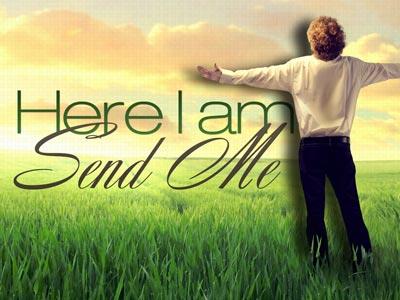-
God's Ruler
Contributed by Gaither Bailey on Nov 28, 2017 (message contributor)
Summary: They way God judges between the righteous and unrighteous differs greatly from the way in which we make those same judgments.
God’s Ruler – Matthew 25:31-46
Intro: How many people in this room would like to loose 20 pounds? / How many people in this room would like to be taller? / Do you know someone who sees themselves as an old alley cat while others see them as a prize Persian? / Can you think of someone who thinks they are a prize poodle and they are really just a mangy mutt? How many of you are happy with yourself just the way you are? / When I was a kid, I thought I must surely be adopted and one day my REAL parents would come and rescue me from the crazy family in which I found myself. / It’s like our son, Christopher who told his mother one day that he didn’t want to be Christopher Carr anymore; he wanted to be Christopher truck. We judge ourselves and each other by comparison. What we use as a yardstick to make our comparisons depends on what we value.
I. Vs. 32 – “Then all the nations will be gathered before him, and he will separate people one from another as a shepherd separates the sheep from the goats.
A Which do you think you are? My children think I’m an old goat. And I’ll bet there are some among you that are thinking the same thing but for different reasons.
B What is the difference between sheep and goats? Is there some distinguishing factor that would help me decide? If there was a flock of sheep and goats here in this room, could you separate one from the other? How would you decide which was which? --- By the way they look. Appearance / Characteristics we can observe.
C We tend to make all our judgments in that way, don’t we? Male and female, rich and poor, white and black, We tend to base most of our judgments on outward appearance.
II. VS. 34 – 36 --- Jesus doesn’t distinguish between goats and sheep by their outward appearance and neither should we.
A. What does Jesus use as his criteria for “sheepness” or “goatness”? How many are happy with yourself just the way your are? Vs, 35 – 37 “You fed me, gave me a drink, welcomed me, clothed me, visited me when I was sick and in jail.”
B. How do you differentiate between your friends and your enemies? Your friends are people who are just like you. You like your friends and welcome them with open arms, warm hugs and kind words. They have value to you because of who they are and what they do for you.
C. How do you recognize your enemies? Usually, it is someone who is very different than you, someone you can’t trust and wouldn’t hug because you are afraid they would stab you in the back or their stink or dirt might rub off on you. So, you tend to stay clear of them.
III. Nearly every time we are out in public, Barbara will find a penny laying on the street or sidewalk. Most people ignore the pennies on the street because they think they are worthless; but, Barbara picks them up because she feels they will eventually add up to something.
A VS. 40 – “Truly I tell you, just as you did it to one of the least of these who are members of my family, you did it to me.”
B Being a Christian isn’t doing something for the church --- it’s doing something for “the least of these” that are precious to Jesus. It’s not how much you give to the church, it’s how much you do for the worthless pennies of society.
C. The ruler God will use for determining the difference between sheep and goats is what you do for the least of these. ----
Conclu: The thing I find most interesting here is the reaction of the Sheep and Goats to the “When?” question. They are both surprised because they didn’t know it was Jesus. --- “Lord, if I had known it was you asking for a handout in those smelly, filthy clothes . . . The lesson to be learned here is that we will all be judged and separated not by the color of our skin or team we supported, or even the church we attended; but, by the way in which we responded to the needs of the least of these our brothers and sisters.

 Sermon Central
Sermon Central



